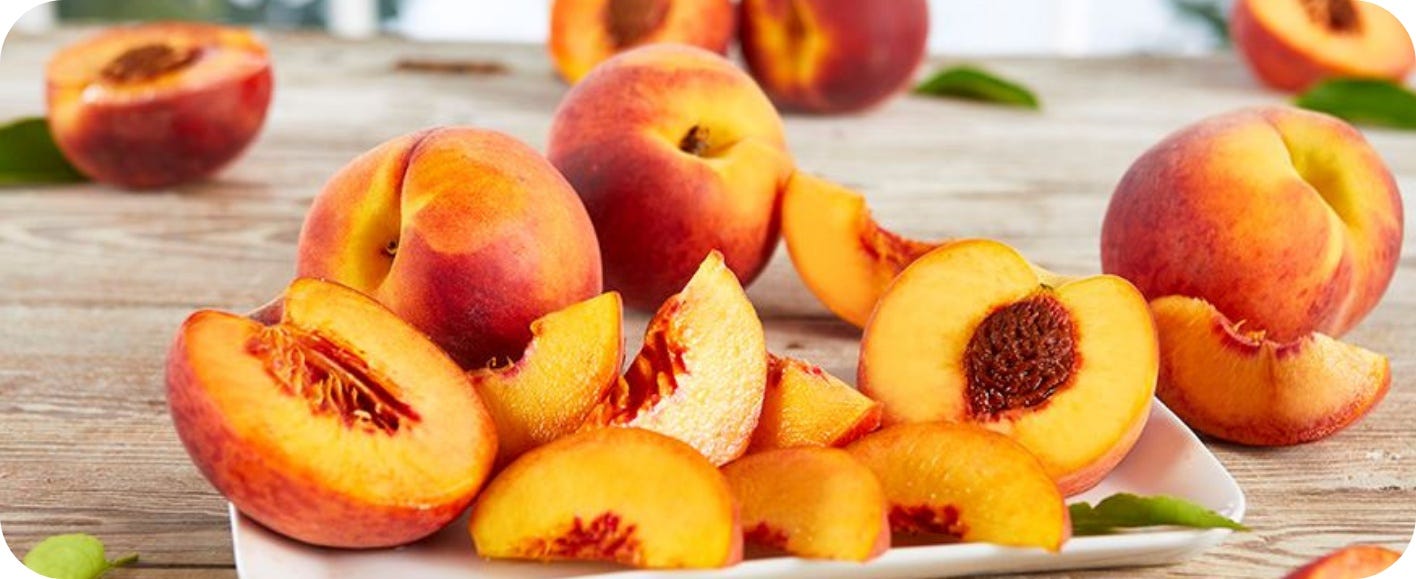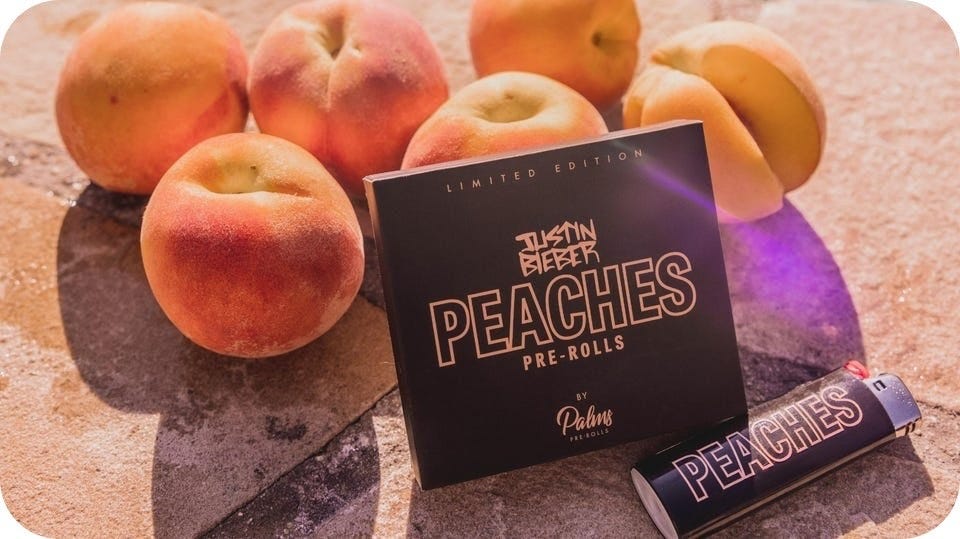In Today’s Issue:
→ Cannabis Retail Data. 💡
→ Demand For Concentrates. ✅
→ Biber’s Cannabis Play. 🎶
More Stores Does Not = More Consumers
A new study examines the link between the number of cannabis stores and its impact on new cannabis consumers…
California legalized cannabis for adult-use purposes in 2016, however, cannabis retail stores are unable to operate in 65% of the municipalities in California.
This problem stems from the stigma still associated with cannabis, despite the fact that legal sales surpassed $4.4 billion USD in 2020 — providing California with $1 billion USD in tax revenue.
The new data…
One of the main concerns is that allowing stores will result in more people consuming cannabis.
In order to address this concern— the cannabis industry needs to be armed with the right data.
To do so, professor Michael Armstrong from Brock University examined the link between the number of new cannabis retail stores in Canada, relative to the number of new consumers consuming cannabis.
The results…
The number of new cannabis retail stores that opened their doors had a very strong correlation with the rising sales in Canada, where cannabis sales have increased 6x since 2019.
“Each added (cannabis) store was associated with added quarterly sales of $305,000 CAD.”
That said, the study found very little evidence to suggest that opening cannabis retail stores directly impacted the number of new cannabis consumers.
The research implies, “though does not prove,” that the majority of legal sales involve existing users converting to regulated sources, not necessarily new users consuming cannabis for the first time.
What this means…
This study can now be used to debunk the claim that opening cannabis retail stores results in many more consumers consuming cannabis, instead, these stores take customers out of the illicit market and into the legal market.
As such, each of the municipalities that are choosing to ban cannabis retail stores is directly contributing to the success of the illicit market.
“An indirect implication of the results is that legal sales – so far – mostly represent market share taken away from illegal sellers, rather than new users entering the market.
Additionally, with every cannabis producer supplying the legal market having to abide by rigorous quality assurance standards, the decision to ban legal stores is directly putting consumers in harm’s way.
“One direct implication of these results is that jurisdictions which add more stores get substantial increases in legal sales but limited increases in prevalence.”
Our Take
With the success of the cannabis industry in California, Canada & every other jurisdiction that has so far legalized cannabis — the justification for banning cannabis retail stores is very weak.
Given the percentage of people who are voting to legalize cannabis, it also seems very odd that retail stores would remain illegal in such a large percentage of municipalities in these regions.
The Growing Demand For Cannabis Concentrates
A new industry report examines the growing demand for concentrates…
In the minds of many, the primary reason why people choose to consume cannabis is for the pleasurable “high” sensation cannabis produces.
As we collectively learn more about the needs of cannabis consumers, and more specifically why they choose to consume cannabis — we are realizing that this reasoning is flawed.
Each person that consumes cannabis has their own reasons why they choose to consume cannabis, and cannabis consumers have preferences for many different form factors of cannabis.
Some consumers prefer dried flowers over edibles, and some consumers have a preference for cannabis concentrates.
There is very mixed demand for cannabis concentrates across North America.
→ In Canada they account for 2.9% of sales.
→ In the U.S they account for 9.5% of sales.
Per Headset, this demand also looks very different right across America.
In Canada, hash is the most popular type of cannabis concentrate — a product made from the trichomes of cannabis.
Live Resin is the most popular type of cannabis concentrate in the U.S — a product made from frozen cannabis plants.
Our Take
This data is necessary to understand what’s happening in cannabis today across North America as consumer’s preferences continue to evolve.
With billions of adults around the world currently not having access to cannabis, it will be very interesting to watch this specific trend in the different nations that legalize cannabis.
Justin Bieber Goes Green
Having conquered the music industry, Bieber is releasing a cannabis brand…
In a first for cannabis, Justin Bieber is leveraging the success of his most recent album “Justice” to launch a cannabis brand.
Courtesy of an exclusive partnership with California based Palms, Bieber’s products will be made available on the 4th of October 2021 across California, Nevada, Massachusetts, & Florida
The products…
Founded in 2018 with headquarters in Hollywood, Palms is a pre-roll brand that can be found on shelves throughout Nevada and California.
Per Forbes, Palms and Bieber were connected by Scooter Brauns who is Bieber’s longtime manager who also happens to have his own cannabis fund
The products will cost between $50 to $60 USD per pack of 7 half-gram joints each rolled with “premium indoor grown cannabis flower”.
The goal…
A conversation long overdue is the positive impact cannabis can have on people’s mental health.
With Bieber having used cannabis in this capacity — he wants to use this opportunity to bring the spotlight to this conversation.
→ He has 114 million followers on Twitter.
→ He has 198 million followers on Instagram.
→ He has 68 million subscribers on YouTube.
“I'm a fan of Palms and what they are doing by making cannabis approachable and helping to destigmatize it–especially for the many people who find it helpful for their mental health.”
Although no numbers have been disclosed, a percentage of the profits from this product line will help support cannabis causes focused on mental health such as Veterans Walk and Talk.
Additionally, they will be supporting The Last Prisoner Project as well as supporting the social equity initiative from Eaze through their Momentum business accelerator.
Following the path paved…
Bieber is by no means the first celebrity to create their own cannabis brand.
→ Ice Cube created Fryday Kush.
→ Seth Rogen created House Plant.
→ Mike Tyson created Tyson Holistic.
→ Martha Stewart created Martha CBD.
→ Snoop Dogg created Leafs by Snoop.
→ Bella Thorne created Forbidden Flowers.
Our Take
We will continue to see more & more celebrities join the cannabis industry in the coming years, as cannabis becomes more “mainstream”.
Although many of these brands won’t obtain the same level of success as a brand like Cookies, these celebrity endorsements will continue to have a positive effect on the destigmatization of cannabis.
For more like this, subscribe to Four PM today to receive the next edition:
If you gained value from this edition of Four PM, share it with your favorite cannabis professionals. 🌎














